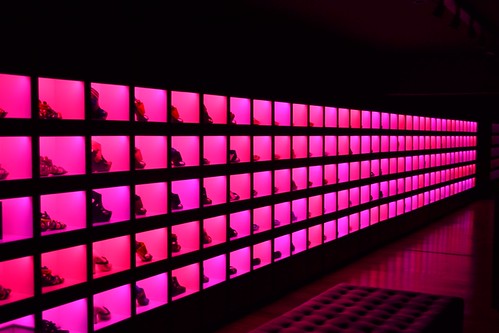In
The Coming of the Body, Herve Juvin spoke of the production of the endless variety of options that the human body can become as a result of the proliferation of medical technologies from cosmetics to accessories to surgical procedures. In a way, this production of possibility upon possibility - possible choices, possible products, possible lifestyles - constitutes a kind of immortality in postmodernity, whereby an urban heaven is available to those with the credit lines to attain it. Possibility has now become the cultural air that we breathe.
This emphasis on possibility constitutes just one cultural outworking of a metaphysical development identified by John Milbank in
Beyond Secular Order. This development, which takes place in the middle ages, saw a reversal of the priority of the actuality over potentiality (which was favoured by the Scholastics at least up until Aquinas). Instead of favouring what was actually existing, this reversal led to a fetish of what could possibly exist.
Over time, this "possibilism" developed into a cultural form where life is to be found in the possibility of choice rather than the actual choice itself. Indeed, the actual choice is now regarded as the ending of choice itself and thus an ending of life itself. This is why our consumer culture is one where the thrill is not so much in the thing being bought, but the possibility that something could be bought, or where the possibility of a relationship is seen as more primary and life-giving than the actual relationship one is in, or where the possibility of what a body can become is seen as more symbolic of life abundant than the actual body.
In a way, this fetish of the possible forms the core of the challenge to the missionary, more so than the actual existence of other religions or the actual atheisms we see today. The challenge is not so much to be in a position where one chooses Christ over others, but rather to encourage him or her to first see an actual choice as the beginning of life rather than the end of it, and then see that real life begins in the choice of loving Christ.
Labels: Church and Culture, discipleship, philosophy, Radical Orthodoxy
